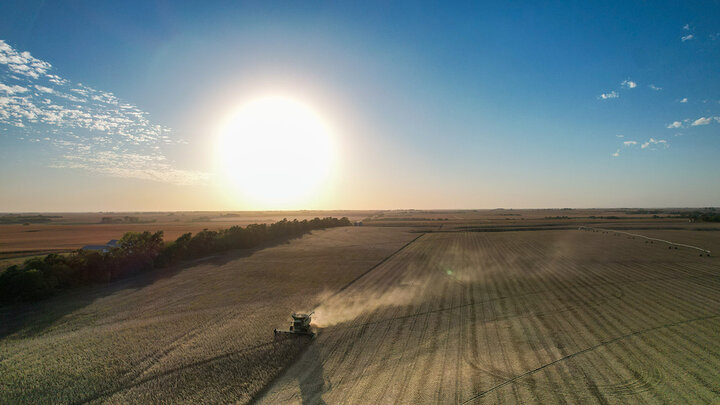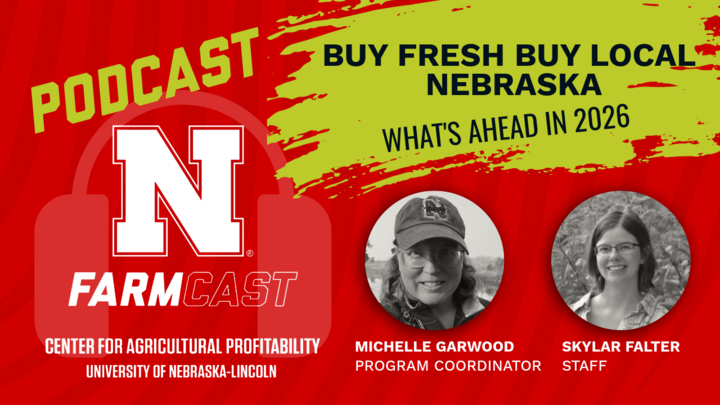In my work with agricultural families, I’m seeing a growing and difficult reality: many farms and ranches today don’t have a successor within the family. While this absence can simplify parts of estate planning, it often creates deeper, more emotional challenges, especially when legacy and identity are tied to the land.
This article is the sixth in a series supporting farm and ranch owners facing this transition. If you're just joining, I recommend reading the earlier pieces at cap.unl.edu for helpful background. In the first article, I encouraged you to think differently about your legacy. It doesn’t have to end with your family. You might consider offering opportunities to employees, tenants, or neighboring producers.
Helping someone outside the family doesn’t mean shortchanging your heirs. There are ways to support other producers while still allowing heirs to retain direct or indirect ownership of land. Often, this means creating a legal agreement that allows someone, like an employee, tenant, or neighbor, to lease land from your heirs, company, or trust.
Now where does the lease agreement come into play? It depends on what other estate and transition tools (wills, trusts, companies, etc.) you are using. Work with your advisory team to know exactly how to structure your lease agreement. Here are the specific clauses the agreements should cover as it relates to leasing to an unrelated party of your choosing.
- Basics – Any valid lease in Nebraska must contain the names of the landlord and tenant(s), a legal description of the land to be rented, the rent amount or share-percentages, the dates of the lease, and signatures of both the landlord and the tenant. Remember, if the land is in a trust or company, that entity will be listed as the landowner. If the lease agreement is longer than 1-year, it must be filed at the county courthouse in order to be valid. I do not recommend referencing a specific lease rate, i.e., “the USDA County Average Rental Rate”. This can make it challenging for families, when the rate was not reported that year, or the survey or reference no longer exists.
- Transfer of Property – When implementing a comprehensive estate and/or transition plan, often property is transferred or re-titled. Including a clause in the lease agreement that states any transfer will be subject to the lease’s provisions will help protect the tenant.
- Binding on Heirs – A “binding on heirs” clause ensures that if you die while leasing property your heirs will be subject to the terms by the agreement.
- Amendments – The terms and conditions for making amendments should be clearly outlined in the lease agreement. Often, leases will require amendments to be in writing and signed by both parties. This is important to allow both parties some flexibility within the lease.
- Termination Clause –If the tenant is not performing well, there needs to be a defined process for your heirs, trust, or company, to be able to terminate the lease. This is vitally important to protect your heirs from a bad tenant.
For examples of lease agreements visit: https://aglease101.org/doclib/
While setting up a lease agreement for your heirs can be useful, it can cause some additional challenges. First, your heirs will need to have the resources to maintain the property. The cost of property taxes, insurance, irrigation maintenance, etc. should not be taken lightly. Moreover, your heirs need to have the business acumen to be able to manage the property. It should be your top priority to make sure they are prepared for this role. If no one is prepared for this responsibility, consider the use of a farm management company.
When there’s no family successor, your legacy can still live on through thoughtful planning. Lease agreements allow you to support someone else in farming or ranching while providing an opportunity for income for your heirs.
Other articles in this series
- Part 1: Embracing Change and Coping with Loss
- Part 2: The Question
- Part 3: Advisory Team
- Part 4: Everyone Needs These Documents
- Part 5: 7 Common Concerns
- Part 6: Leasing Land to Non-Related Parties (this article)
- Part 7: Option-to-Buy Agreements with Non-Related Parties
- Part 8: Right of First Offer and Right of First Refusal
- Part 9: Selling Assets During Life




